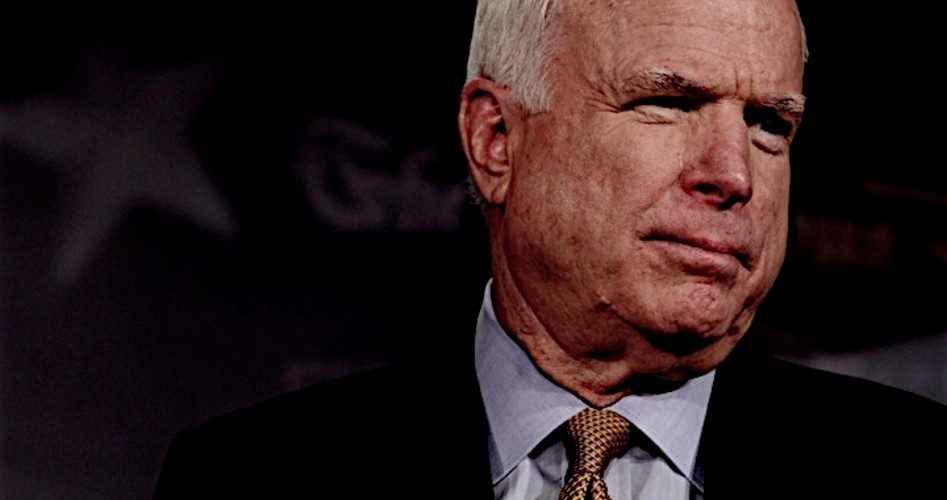
Senator John McCain (shown) yesterday accused Senator Ted Cruz of having “crossed a line” when the Texas Republican claimed that the GOP’s most recent losing presidential candidates — Bob Dole, McCain, and Mitt Romney — “don’t stand for principle.” McCain, the five-term Republican senator from Arizona and the party’s 2008 nominee, said Cruz owed Dole an apology.
Cruz, in a speech Thursday at the Conservative Political Action Conference, told the crowd the three losing presidential candidates should have stood up for their views. “All of us remember President Dole, President McCain, and President Romney,” Cruz said facetiously. “All of those are good men, those are decent men — but when you don’t stand and draw a clear distinction, when you don’t stand for principle, Democrats celebrate,” he said.
“He can say what he wants to about me and he can say anything he wants to about Mitt,” the senator from Arizona said on MSNBC’s Andrea Mitchell Reports. “But when he throws Bob Dole in there, I wonder if he thinks that Bob Dole stood for principle on that hilltop in Italy, when he was so gravely wounded and left part of his body there fighting for our country?”
Dole, the last of the World War II veterans to be the presidential nominee of one of the two major parties, lost the use of his right arm after being wounded in the fighting in Italy. McCain, a Navy bomber pilot in the Vietnam War, rather modestly omitted reference to his own war record, as one who was shot down in that war and spent five-and-a-half years as a prisoner of war in North Vietnam. He was also confusing patriotism and courage in combat with a principled stand in politics.
John F. Kennedy demonstrated heroism in combat when his PT boat was shattered in the Pacific during World War II. But that did not prevent civil rights leaders from accusing the author of Profiles in Courage of equivocating on his professed belief in “racial equality” — until, two-and-a-half years after entering the White House, he proposed what became the Civil Rights Act of 1964 in response to pressure from the civil rights movement. Sen. Edward M. Kennedy showed physical courage when he faced an angry crowd that shouted him down in a demonstration against forced busing. Yet few politicians could rise farther and faster above principle than “Teddy” Kennedy. George H.W. Bush was among the first to enlist in World War II and as a combat pilot was shot down over the Pacific. But the president who said, “Read my lips: No new taxes” was not a stranger to equivocation, as he demonstrated when he later pushed through Congress what was then the largest single tax increase in U.S. history.
And McCain, who must have been extremely courageous to endure all those years as a POW in Vietnam, has gone back and forth on his own principles, on immigration reform, for example. He has sometimes made his usually consistent stand against abortion ambiguous and his sponsorship of the Campaign Finance Act of 2002, ruled unconstitutional by the Supreme Court in the much maligned decision in Citizens United v. Federal Communications Commission, showed a greater interest in protecting incumbents, himself included, than in standing for the principles of the First Amendment in our Constitution’s Bill of Rights.
Perhaps John McCain, a good and decent man, nonetheless owes his Arizona constituents and all Americans an apology for violating his oath to uphold and defend the Constitution of the United States.
Photo of Sen. John McCain: AP Images

